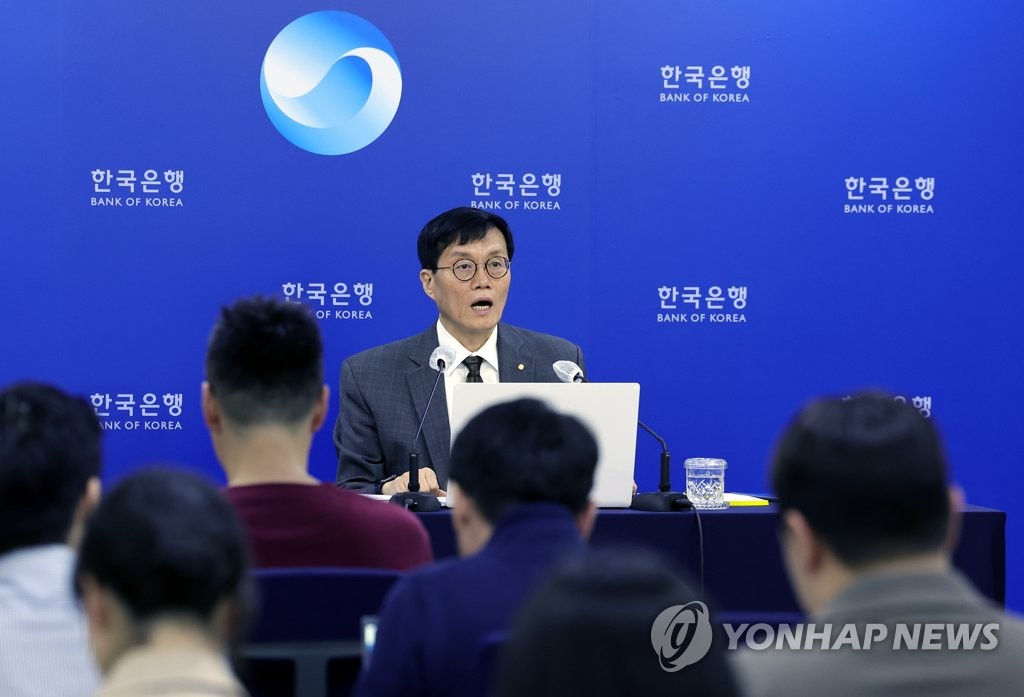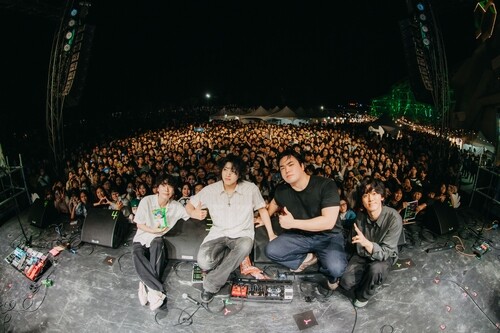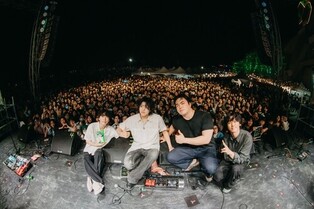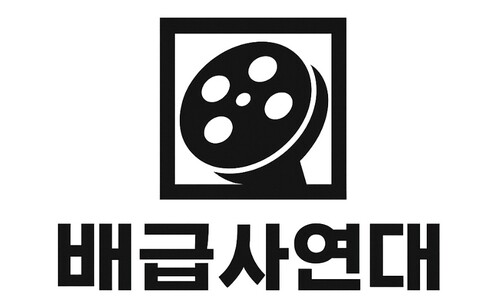 |
| ▲ Bank of Korea Gov. Rhee Chang-yong meets reporters at the central bank in Seoul on April 11, 2023. Earlier in the day, the bank decided to keep its key interest rate unchanged for the second time straight at 3.5 percent as worries are growing that aggressive monetary tightening could hurt economic growth. (Pool photo) (Yonhap) |
(3rd LD) BOK-rate decision
(3rd LD) BOK holds key interest rate steady for 2nd straight time as recession woes rise
(ATTN: ADDS BOK chief's remarks, info throughout; CHANGES photo)
SEOUL, April 11 (Yonhap) -- South Korea's central bank held its key interest rate steady for the second straight time Tuesday as inflation appears to be easing and concerns are rising over an economic slowdown.
In a widely expected decision, the seven-member monetary policy board of the Bank of Korea kept the benchmark seven-day repo rate unchanged at 3.5 percent. The decision was made unanimously, the BOK said.
This marked the second straight time that the BOK has stood pat on monetary policy following a rate freeze in February. The pause came after the BOK had delivered seven consecutive hikes in borrowing costs since April last year.
"It is forecast that inflation will continue to be above the target level for a considerable time although it is projected to continue to slow, and uncertainties surrounding the policy decision are also judged to be high with increasing risks to the financial sector in major countries," the BOK said in a statement.
"The board, therefore, sees that it is appropriate to judge whether the base rate needs to rise further while assessing the pace of the slowdown in inflation, financial stability conditions and developments in other uncertainties," it added.
The back-to-back rate freezes are raising expectations that the BOK might be ending its long-held hawkish monetary policy stance amid signs of moderating inflation, rising economic slowdown woes and lingering fears over global banking turmoil.
The BOK, however, cautioned against interpreting them as signaling an end to the rate-lifting cycle that started in August 2021, or a pivot to cuts, saying five board members favor leaving out the possibility of a quarter point rate hike in the months to come.
"I think it's better not to talk about rate cuts until (the BOK) is confident that inflation is converging to its medium- to long-term target," BOK Gov. Rhee Chang-yong told a post-meeting press conference.
South Korea's consumer prices, the main gauge of inflation, rose 4.2 percent in March from a year earlier, which was the slowest on-year price rise in a year. It has been on the decline since peaking at a 24-year high of 6.3 percent in July last year.
It is still much higher than the central bank's midterm inflation target of 2 percent.
Though inflation appears to be moderating, the country's economy is showing signs of slowing down too, with exports, the country's major growth engine, sharply shrinking in the face of less demand in major markets.
South Korea posted a current account deficit for the second straight month in February, which was the first of its kind in about 11 years.
Its exports also shrank for the sixth consecutive month on-year in March due mainly to weak global demand for semiconductors amid global recession worries.
South Korea is also facing high uncertainty in the banking sector stemming from the recent collapses of Silicon Valley Bank and the global bank Credit Suisse.
In February, the BOK lowered its economic growth outlook for South Korea this year to 1.6 percent from a 1.7 percent rise predicted three months earlier.
The BOK said that economic growth will be "slightly" below the February forecast, though uncertainties regarding the outlook remain high. It is widely expected to lower the projection when it announces revisions in May.
In 2022, South Korea's gross domestic product (GDP) expanded 2.6 percent, slowing from a 4.1 percent advance tallied the previous year. In the fourth quarter of last year, GDP shrank 0.4 percent from three months earlier.
"The slowdown in the global economy and the impact of interest rate hikes so far have continued to slow growth," Rhee said. "While consumption has eased somewhat, exports continue to fall sharply and growth will only turn marginally positive in the first quarter."
Tuesday's freeze comes even though the rate difference with the United States is widening. Higher rates in the U.S. are feared to prompt money outflows from here, thereby weakening the local currency against the dollar and exerting upward inflation pressure by making imports more expensive.
The U.S. federal funds rate currently stands at a range of 4.75 percent to 5 percent, with the gap with South Korea's rate at up to 1.5 percentage points, the widest difference since October 2000. The Fed's next rate-setting meeting is to be held in May.
Rhee said that measures, including those dealing with the monetary policy, will be taken should volatility in the foreign exchange market heighten.
(END)
(C) Yonhap News Agency. All Rights Reserved



















![[풀영상] 디즈니+ '메이드 인 코리아' 제작발표회|현빈 Hyunbin·정우성 Jung Woosung·우도환·서은수·원지안·정성일·강길우·노재원·박용우|Made In Korea](/news/data/20251215/p179554206856695_165_h.jpg)














